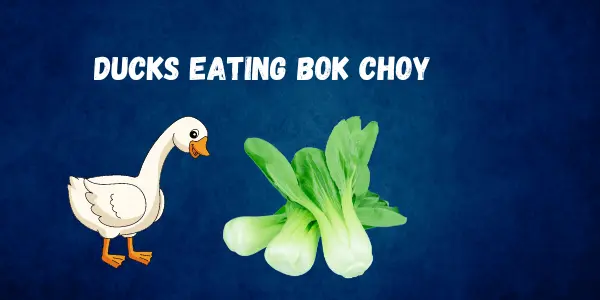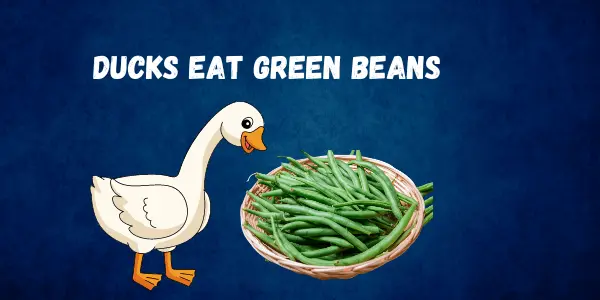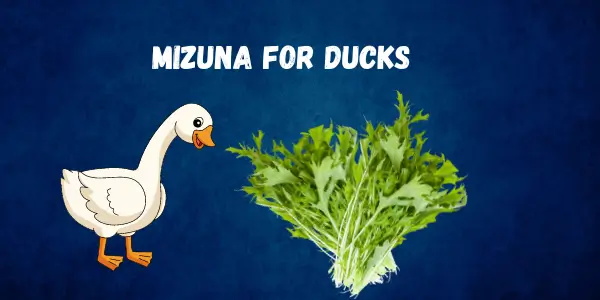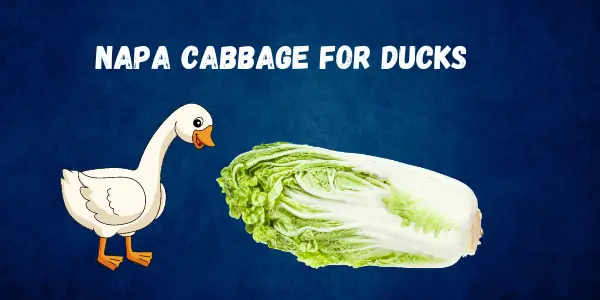A Comprehensive Guide to Can Ducks Eat Peas With Feeding Tips
Published: 8 Sep 2024
Can Ducks Eat Peas? Everything You Need to KnowDucks enjoy a variety of foods, but if you’re wondering, can ducks eat peas? The answer is yes! Peas are a nutritious and safe treat for ducks when fed in moderation.
Whether you have backyard ducks or enjoy feeding wild ducks at a local pond, understanding the benefits, risks, and best feeding practices will help ensure their health and well-being.
Are Peas Safe for Ducks to Eat?
Yes, peas are safe and healthy for ducks as long as they are served properly. They provide essential vitamins, minerals, and fiber, supporting a duck’s balanced diet. However, like any treat, moderation is key to preventing digestive issues and nutritional imbalances.
Nutritional Value of Peas for Ducks
Peas are packed with nutrients that contribute to a duck’s overall health. Some key nutrients found in peas include:
- Protein – Supports muscle growth and development.
- Vitamins – Rich in Vitamin A, Vitamin K, and pantothenic acid, which aid in vision, blood clotting, and metabolism.
- Minerals – Contains calcium, phosphorus, and iron, which support bone health and energy production.
- Fiber – Aids digestion and promotes gut health.
- Low in Sugar – Unlike fruits, peas offer a nutritious treat without excess sugar.

Benefits of Feeding Peas to Ducks (Vitamins, Minerals, and Protein)
| Benefits of Feeding Peas to Ducks (Vitamins, Minerals, and Protein) |
|---|
|
Including peas in a duck’s diet provides several advantages: Great Source of Plant-Based Protein – Helps in muscle development, making peas a valuable supplement to a duck’s natural diet. |
Potential Risks of Feeding Too Many Peas
While peas are beneficial, overfeeding can cause problems:
Digestive Upset – Feeding too many peas at once may lead to bloating or diarrhea.
Calcium Absorption Issues – Peas contain oxalic acid, which can interfere with calcium absorption, potentially leading to weak bones or eggshell issues in laying ducks.
Nutritional Imbalance – Ducks need a varied diet; too many peas could replace other essential nutrients found in duck feed and other natural foods.
How to Avoid Overfeeding Issues
- Offer peas as an occasional treat, not a staple food.
- Serve in small portions alongside a balanced duck diet.
- Mix peas with other duck-friendly vegetables to promote variety.
Different Kinds of Peas Ducks Eat – What’s Best for Ducks?
| Different Kinds of Peas Ducks Eat – What’s Best for Ducks? |
|---|
Do Ducks Eat Frozen Peas?Yes, ducks eat frozen peas, but they should be thawed before serving. Feeding ducks frozen, hard peas may pose a choking risk and can be difficult to digest. Always let them sit in room-temperature water for a few minutes before offering them to your ducks. Can Ducks Eat Black-Eyed Peas?Yes, black-eyed peas are safe for ducks if cooked and unseasoned. They provide protein, fiber, and essential minerals, but should only be fed in moderation as part of a balanced diet. Avoid canned black-eyed peas, as they often contain added sodium and preservatives that are harmful to ducks. Can Ducks Eat Chickpeas?Ducks can eat cooked chickpeas, but they should be soft and unseasoned. Raw or dried chickpeas can be too hard and difficult for ducks to digest. Soaking and cooking them makes them safer and more enjoyable for ducks. Can Ducks Eat Dried Peas?No, dried peas are too hard for ducks to eat safely. They can cause choking or digestive issues. If you want to feed dried peas, make sure to soak and cook them until they are soft. Can Ducks Eat Dried Split Peas?No, dried split peas are not recommended for ducks. They are hard and difficult to digest, which can lead to intestinal blockages. Always opt for fresh, thawed, or cooked peas instead. Can Ducks Eat Pea Pods?Yes, ducks can eat pea pods, but it depends on the type of pod. Tender, soft pea pods (like sugar snap pea pods) are safe and easy to eat, while tougher pods should be chopped into small pieces before feeding. Can Ducks Eat Split Peas?If cooked and softened, split peas are safe for ducks. However, dried split peas should be avoided as they are too hard and difficult to digest. Can Ducks Eat Sugar Snap Peas?Yes! Sugar snap peas are a healthy, crunchy treat for ducks. They contain fiber, vitamins, and minerals that contribute to strong bones and digestion. You can serve them raw, chopped, or cooked. Can Ducks Eat Sweet Peas?No, ducks should not eat sweet pea plants or flowers. Sweet peas (Lathyrus odoratus) contain toxic compounds that can be harmful if ingested. Stick to edible garden peas like green peas or snap peas. Can Ducks Eat Canned Peas?It’s not recommended to feed ducks canned peas because they often contain added salt and preservatives, which are harmful to ducks. If you must use canned peas, rinse them thoroughly with water before serving. Can Ducks Eat Green Peas?Yes, ducks can eat green peas! Fresh or thawed frozen green peas are a great source of vitamins, fiber, and plant-based protein. They are easy to digest and can be served as a healthy snack. Can Ducks Eat Snap Peas?Yes, snap peas are a nutritious treat for ducks. Their crunchy texture and natural sweetness make them an enjoyable addition to their diet. Chop them into smaller pieces for easier eating. When Can Ducks Eat Peas?Ducks can eat peas at any stage of life, but they should be introduced in small amounts to prevent digestive issues. Peas are best served:
Can Baby Ducks Eat Peas?Yes, baby ducks (ducklings) can eat peas, but they must be mashed or finely chopped to prevent choking. Peas provide essential protein, vitamins, and minerals that support healthy growth. Can Backyard Ducks Eat Split Peas?Yes, backyard ducks can eat cooked split peas, but dried split peas should be avoided. Cooking softens the peas, making them easier to digest. Can Ducks Eat Cooked Peas?Yes! Cooked peas are soft, easy to digest, and retain most of their nutritional value. Just make sure they are plain and unseasoned—no butter, salt, or spices. Can Ducks Eat Dried Snap Peas?No, dried snap peas are too hard for ducks and can cause digestive issues. Instead, feed them fresh or cooked snap peas for a safer and healthier treat. Can Ducks Eat Pea Plants?Yes, ducks can eat pea plants, including the leaves, stems, and tendrils. However, avoid feeding sweet pea plants, as they contain toxic compounds. Can Ducks Eat Raw Peas?Yes, ducks can eat raw peas, but they should be fresh, soft, and easy to swallow. Some ducks may prefer cooked or thawed peas for easier digestion. Can Ducks Eat Raw Split Peas?No, ducks should not eat raw split peas. Raw split peas are hard and can cause digestive issues or choking hazards. It’s best to soak or cook them before feeding them to ducks. Can Ducks Eat Snow Peas?Yes, ducks can eat snow peas! Snow peas are soft, easy to chew, and full of vitamins and fiber. You can feed them raw or lightly cooked, but avoid adding salt or seasonings. Can Ducks Eat Split Pea?Yes, ducks can eat split peas, but only if they are cooked or softened. Dried split peas are too hard for ducks and should be avoided. Can Ducks Eat Uncooked Split Peas?No, uncooked split peas are not safe for ducks. They are too hard to digest and can lead to digestive discomfort. Always soak and cook split peas before offering them. Can Ducks Eat Yellow Split Peas?Yes, but only if cooked. Uncooked yellow split peas are too hard for ducks and should be softened before feeding. Will Ducks Eat Pea Gravel?No, pea gravel is not food and should not be fed to ducks. However, ducks may accidentally ingest small pebbles while foraging. This is normal, as ducks swallow grit to help digest food in their gizzard. Can Ducks Eat Defrosted Peas?Yes! Defrosted peas are a great treat for ducks. They should be thawed and soft before serving. Simply leave frozen peas in room-temperature water for a few minutes before feeding. Can Ducks Eat Frozen Peas in Water?Yes, ducks can eat frozen peas in water, but they should be thawed first. Floating peas in water can be a fun way to enrich ducks while keeping them hydrated. Can Ducks Eat Field Peas?Yes, ducks can eat field peas if they are cooked or soaked. Field peas are a good source of protein and fiber, but avoid feeding them raw and hard. Can Ducks Eat Sweet Pea Flowers?No! Sweet pea flowers are toxic to ducks. They contain harmful compounds that can lead to digestive upset or poisoning. Only feed ducks edible garden peas like snap peas or green peas. Can Ducks Eat Garden Peas?Yes, ducks love garden peas! Fresh garden peas are a nutritious treat, rich in vitamins, fiber, and protein. Always serve them raw, thawed, or lightly cooked. Do Ducks Eat Pea Gravel?Ducks may swallow small amounts of pea gravel, but not as food. Ducks naturally consume grit and small stones to help with digestion. However, too much gravel can cause blockages, so avoid excessive exposure. Can Ducks Eat Green Split Peas?Only if cooked and softened. Dried green split peas are too hard and unsafe for ducks. Cooking them makes them easier to digest. Can Ducks Eat Green Pigeon Peas?Yes, cooked green pigeon peas are safe for ducks in small amounts. They are rich in protein and nutrients, but raw pigeon peas should be avoided due to their hard texture. Can Ducks Eat Mushy Peas?Yes, mushy peas are safe for ducks. They are soft, easy to digest, and retain their nutrients. Just make sure they are plain, without salt, butter, or seasoning. Can Ducks Eat Marrowfat Peas?Yes, but only if cooked. Raw marrowfat peas are too hard for ducks. Cook them until soft before serving. Can Ducks Eat Uncooked Yellow Split Peas?No, uncooked yellow split peas are too hard for ducks and can cause digestive issues. Always soak and cook them before feeding. Can Ducks Have Snow Peas?Yes, ducks can have snow peas! They are a great source of fiber, vitamins, and hydration. Feed them raw, chopped, or lightly steamed for easy digestion. |
How Much Peas Can Ducks Eat? (Avoiding Overfeeding Issues)
Peas are a nutritious treat for ducks, but feeding too many can lead to nutritional imbalances and digestive issues. Ducks thrive on a varied diet, and while peas provide vitamins, minerals, and protein, they should only make up a small portion of their diet.
Signs of Overfeeding
Overfeeding peas—or any single food—can lead to health problems in ducks, including:
- Diarrhea or loose droppings due to excess fiber.
- Loss of appetite for other essential foods, such as grains and greens.
- Weight gain or obesity, especially in backyard ducks with limited foraging.
- Vitamin imbalances, particularly if ducks rely too much on peas instead of a nutritionally complete diet.
If you notice any of these symptoms, reduce the amount of peas and ensure ducks have access to a balanced diet.
Moderation and Dietary Balance
To avoid overfeeding, follow these simple guidelines:
✔ Peas should be a treat, not a staple—about 10–20% of a duck’s diet.
✔ Offer peas 2–3 times a week, rather than daily.
✔ A handful of peas per duck is a good portion size.
✔ Balance peas with other vegetables, grains, and proteins to maintain a healthy diet.
How to Feed Peas to Ducks the Right Way
Feeding peas correctly ensures ducks enjoy the benefits without any health risks.
Proper Portion Sizes and Feeding Frequency
- For adult ducks: 1–2 tablespoons of peas per duck is ideal.
- For ducklings: Smaller portions, about ½ to 1 tablespoon per duckling.
- Feeding frequency: Peas can be given a few times a week as an occasional treat.
Avoid dumping large amounts of peas at once, as uneaten food can attract pests and cause contamination.
Mixing Peas with Other Duck-Friendly Foods for a Balanced Diet
To enhance nutrition, mix peas with other duck-friendly foods, such as:
✔ Leafy greens (lettuce, kale, spinach in moderation).
✔ Other vegetables (zucchini, cucumbers, bell peppers).
✔ Duck pellets (a complete commercial feed).
✔ Grains (cooked rice, oats, or corn in small amounts).
This helps ensure ducks get a variety of nutrients rather than relying too much on a single food.
Best Practices for Feeding Peas to Backyard and Wild Ducks
- Use thawed, fresh, or cooked peas—never dried or hard peas.
- Chop or lightly mash peas for ducklings to make them easier to eat.
- Scatter peas in water for a fun feeding activity that mimics natural foraging.
- Avoid feeding in large piles to prevent waste and mold buildup.
By following these guidelines, you can safely and effectively include peas in a duck’s diet, keeping them healthy and well-fed!
FAQs: Feeding Ducks Peas?
Yes! Ducks can eat peas with other vegetables as part of a varied and balanced diet. Many vegetables provide essential vitamins, minerals, and hydration, making them a great supplement to a duck’s diet. However, not all vegetables are safe—some must be prepared correctly to ensure easy digestion.
Yes! Ducks can eat peas and carrots together, and both are nutrient-rich treats.
- Peas provide protein, fiber, and vitamins such as Vitamin A, Vitamin K, and Vitamin C.
- Carrots are packed with beta-carotene (Vitamin A), which supports eye health and boosts immune function.
Yes, ducks can eat peas and corn, but in moderation. Corn is a high-energy food, and while it is safe, it should not replace a duck’s main diet.
- Peas offer fiber, protein, and essential nutrients.
- Corn provides carbohydrates and natural sugars that give ducks an energy boost.
Yes! Ducks can eat peas and green beans, but preparation is key.
- Peas supply protein and essential nutrients for duck health.
- Green beans are rich in fiber, Vitamin C, and antioxidants, which support digestion and immune function.
Conclusion
Peas can be safely combined with various vegetables, including carrots, corn, and green beans, to create a nutrient-dense, balanced diet for ducks. However, it’s important to:
- Feed vegetables in moderation to prevent nutritional imbalances.
- Prepare vegetables properly (chop, cook, or grate as needed).
- Avoid harmful additives like salt, butter, and seasoning.
By following these guidelines, you can ensure your ducks enjoy a variety of healthy, delicious treats while staying active and thriving!

- Be Respectful
- Stay Relevant
- Stay Positive
- True Feedback
- Encourage Discussion
- Avoid Spamming
- No Fake News
- Don't Copy-Paste
- No Personal Attacks

- Be Respectful
- Stay Relevant
- Stay Positive
- True Feedback
- Encourage Discussion
- Avoid Spamming
- No Fake News
- Don't Copy-Paste
- No Personal Attacks





